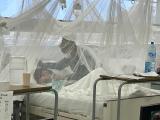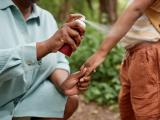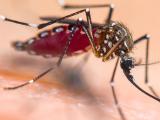In what may be the most accurate real-time picture of Zika activity in Puerto Rico, a sensitive test for screening blood donations shows rapidly rising levels that could result in thousands of infections in pregnant women, the US Centers for Disease Control and Prevention (CDC) warned today.
At a media briefing, CDC Director Tom Frieden, MD, MPH, said high levels of Zika activity in the US territory could result in dozens to hundreds of babies born with microcephaly.
Puerto Rico has been using a highly sensitive investigational test since Apr 3 to screen local blood collections. Frieden said that though it's not a stand-in for a serologic survey and doesn't reflect a random sample, "it gives us a window to see what's happening with infection rates." Illnesses probably haven't peaked yet, and disease activity—in view of dengue and chikungunya patterns—may last through summer and into the fall.
The Food and Drug Administration (FDA) on Mar 30 announced that the polymerase chain reaction (PCR) screening test, made by Roche Molecular Systems, could be used under an investigational new drug application (IND) in areas experiencing local Zika transmission. CDC officials today said the FDA's action doesn't preclude the test's use in other settings.
Frieden said the test is so sensitive that it can detect even a few copies of the virus in a milliliter of blood
In Puerto Rico last week, testing showed evidence of Zika virus in 1.1% of blood donations, which were removed from the blood supply. That level was the highest seen so far. Frieden said the proportion of positives has increased steadily since late April. Researchers from Puerto Rico and the CDC published the findings today in an early edition of Morbidity and Mortality Weekly Report (MMWR).
This level of positive tests, if it continues over many months, points to a substantial threat of infection, especially to pregnant women.
Matthew Kuehnert, MD, director of the CDC's office of blood, organ, and other tissue safety, said the same investigational nucleic acid test is in use at one blood center on the US mainland. So far no positives have been detected in tests on more than 9,000 blood donations, he said.
Gulf Coast Regional Blood Center in Houston had announced that it started using the test on May 23. Kuehnert said other blood centers in the southeastern United States are also planning to start using the screening test. Currently, US blood centers are deferring blood donations from those reporting recent travel to countries and territories where the virus is circulating.
See also:
Jun 17 MMWR report
Mar 30 FDA news release






















